Arena – Winter 2021
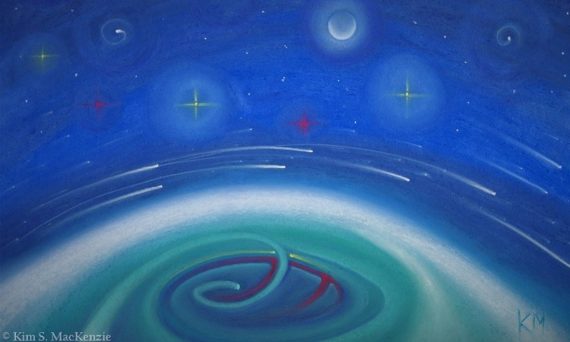
|
In This Issue
|
|
Phillip Marriott, Adelaide, SA 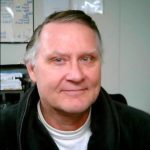 It is extremely easy to see the darkness. There is a lot going on in the world right now that is not great right from an individual level, through our relationships, to our families, communities, cities, countries, races, and our planet. It is all very de-powering and can make one quite despondent. It is extremely easy to see the darkness. There is a lot going on in the world right now that is not great right from an individual level, through our relationships, to our families, communities, cities, countries, races, and our planet. It is all very de-powering and can make one quite despondent.
Most people have an opinion, whether it’s well informed or not, and tend to think that their view is right. Better to have an opinion than not (that’s my opinion). Who is responsible? – not me, it must be someone else; the government, big business, the Illuminati, The Rockefellers, the evil scientists, the minion’s, the church, Elvis, the aliens, the virus?
What to do? Well, that depends on how comfortable you are with your current position. Do nothing, keep plodding on, hope for the best, it’ll be alright, don’t see the point anyway. Concerned but don’t know what you can do.
Or perhaps you can see the light, you have the answer and you’re not going to be beaten. You know that anything good requires effort, work, intention, and deliberate action. You have made a choice, a decision to acknowledge and see the good.
In my opinion it’s all about perspective. With which lens do I choose to view the world? For me I believe I can take responsibility for the things that I can control. It takes work and effort because I often slip and lose control, but I believe I can choose how I respond, how I view the world and my surroundings. That’s not to say I’m a space cadet, I still need to eat, sleep, pay bills, and do all the practical things while I live my life and honour my relationships.
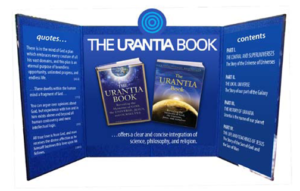 All I can say is thank goodness for The Urantia Book; it found me when I was least expecting it. It was able to slip in during the quietest moments. The Urantia Book is my lens for the moment, so now I can practice being a cosmic citizen. When I look up at the stars, I know that it is a friendly place, full of family, reaching out to me, beckoning to me. We are all loved and valued, we count and have experiences to share. All I can say is thank goodness for The Urantia Book; it found me when I was least expecting it. It was able to slip in during the quietest moments. The Urantia Book is my lens for the moment, so now I can practice being a cosmic citizen. When I look up at the stars, I know that it is a friendly place, full of family, reaching out to me, beckoning to me. We are all loved and valued, we count and have experiences to share.
Also, our success is guaranteed because each and every one of us has a spiritual guide; a guide that will not fail – cannot fail – and is keen to be with us. Its patience and tolerance are endless; its love is boundless. Our guide will always show us the way if we would but let it.
There will be effort, it will not be a life of ease, there will be problems to solve, trials to overcome, lessons to learn. With faith we know that these are for the benefit of both of us. So what to do now? Get on with my life and continue to enjoy my family and personal relationships. Learn to tolerate others, play my part in the world, be a good citizen. But above all allow the fruits of the spirit to infuse me, become spiritually fragrant. Enjoy the brightness as the dark spots dim.
I am grateful for the Father’s creation of all that there is; the bestowal of personality and his guiding fragments. I am grateful for the Mother Son’s creation of the spiritual family. I am grateful for the Mother Spirit’s creation of life and mind.
On a more down to earth level, I am grateful for Urantia Book study groups. Where else can I have an open discussion about these wonderful papers and their content? Where else can I get to enjoy an alternate view of this tome? Where else can I get to interact with others of like mind?
The annual Study Day was held in June – read on in this issue for some reflections from some of those who met. If you hold a study group, we would love to hear how it is progressing and to know how many readers attend regularly. It would also be good to hear whether you have a theme or special intent that you focus your study on.
As I write this at the end of July, Sydney is still in lockdown thanks to Covid-19. Sydney is the home of our upcoming conference in October this year and our expectations of an in-person event is hanging in the balance. We will wait and see where things are and decide by the end of August whether we go ahead in-person or convert it to a Zoom event.
I am grateful to all of you reading this for your participation, co-operation, patience, and willingness to share, also your willingness to listen to my ramblings as I try to make sense of this new world.
I hope you enjoy this issue of the Arena. Thank you all and go in peace, but above all – be of good cheer.
|
|
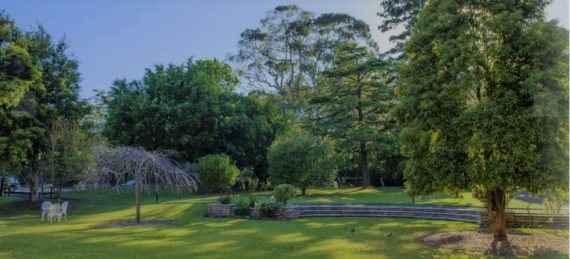
For those planning on coming to this year’s Sydney conference being held 1 – 4 October at the Peter Canisius House in Pymble, this is a reminder to send us your registration.
Although we’ve all no doubt been affected by the July Covid-19 lockdowns, we’re still anticipating that the conference will go ahead as an in-person event in October. As it’s still a couple of months away and the vaccines continue to roll out, it’s still possible that things will be under control by then. And if we do go ahead, we’ve been assured by the staff at the venue (who continued to operate last year during the initial outbreak) that they will take all the necessary precautions to minimise the chances of spreading the virus. Of course, if we do need to cancel, we will fully reimburse those who have already paid their registrations.
About the Program: The Goodness of Love – The Keystone to Reality
The universe we live in is a wonderful and mysterious place and our minds are innately equipped to embark on an alluring adventure of discovery. This mind can be likened to a living instrument. Each of us are the creative personal players and composers of it. We each have the potential and responsibility within us to contribute to the creation of finite reality as we are all incredibly unique and can be of tremendous value to one another. Collectively we can—over time—make a truly good and beautiful finite world for our children and our children’s children.
But what is a keystone? When building an archway, a keystone is the wedge-shaped stone at the summit of the arch. It is the final stone placed during construction and locks all the other stones into position, allowing the arch to bear the weight. It is something on which associated things depend, hence the term “the keystone of one’s philosophy.”
The folks on the conference planning team have endeavoured to produce a program that goes deep into subjects near and dear to our hearts, while allowing plenty of time for discussion. Our goal is to find and unpack the elements—or qualities—needed to make up our keystone to reality.
Truth is coherent, beauty attractive, goodness stabilizing. And when these values of that which is real are co-ordinated in personality experience, the result is a high order of love conditioned by wisdom and qualified by loyalty. [Paper 2:7.12, page 43.5 emphasis added]
As a preview, here is a list the presentations and presenters:
Living in the Flesh – Julian Martin
We Are Because I AM – Nigel Nunn
Finite Ladders – Trevor Swadling
Courageous Loyalty – Phillip Marriott
How is Truth Coherent? – Andrew Swadling
How is Beauty Attractive? – Merindi Belarski
How is Goodness Stabilizing? – Daniel Swadling
The Benefits of Factual Mediation – Robert Coenraads
Selfless Loving Service – Regina Williamson
The Fountainhead of Creative Thinking – Vern Verass
Entertainment
There will also be some light-hearted entertainment and good quality social time. On Saturday night we plan to have a “Urantia Has Talent” contest so hone those creative talents, bring along musical instruments if you can, and take the plunge to showcase what creative talents you have, and let the panel of hard-nosed judges rate your skills! (For any piano players we will have a Roland keyboard set up for you. There might even be a couple of spare guitars, ukeleles and mandolins floating around.)
For further information on the details of the conference and registration click here.
For further information please contact ANZURA:
Phone: 0431 285 943
anzura.urantia@gmail.com
|
|
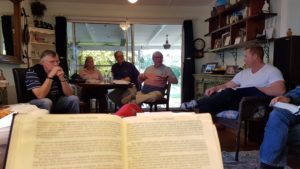 When ANZURA arranges a Study Day, the hope is to provide an opportunity for students of The Urantia Book to participate in a specially formed study group in their regional areas so that reads are meeting on the same day studying the same paper. The value of meeting with other readers is not to be underestimated—after all, our personal growth and religious experiences are best fostered while we are relating – inter-acting – with other personalities! When ANZURA arranges a Study Day, the hope is to provide an opportunity for students of The Urantia Book to participate in a specially formed study group in their regional areas so that reads are meeting on the same day studying the same paper. The value of meeting with other readers is not to be underestimated—after all, our personal growth and religious experiences are best fostered while we are relating – inter-acting – with other personalities!
Groups met over the weekend of 19th June to study Paper 2: The Nature of God. The following articles contain some reflections from some who met.
Hunter Region Meeting Reflections
Reflections by Marianne Cameron, Jim Neal, Andrew Swadling and Rita Schaad, Newcastle
The Revelators (in this case the Divine Counselors, the third in the group of Coordinate Trinity-Origin Beings) and a small group amongst 21 billion stationary Divine Counselors, assigned to function within the Universe of Nebadon, start by apologizing. Well, maybe not apologizing, but rather attempting to explain their inability to fully disclose to us the Nature of God.
They call the material at hand ‘poorly’, although they agree that the olden prophets did understand somewhat the eternal, never-beginning, never ending, circular nature of the Universal Father. Much that has been used in this paper from the old scriptures to describe God’s infinity, perfection, righteousness and love sounds awfully good to us.
…“How pure and beautiful, how deep and unfathomable is the supernal Ancestor of all things!”
“The Infinite is most excellent in that he imparts himself to men….” [Paper 2:1.2, page 34.1]
…The Universal Father does not repent of his original purposes of wisdom and perfection. His plans are steadfast, his counsel immutable, while his acts are divine and infallible. [Paper 2:2.2, page 35.6]
How futile to make puerile appeals to such a God to modify his changeless decrees so that we can avoid the just consequences of the operation of his wise natural laws and righteous spiritual mandates! “Be not deceived; God is not mocked, for whatsoever a man sows that shall he also reap.” [Paper 2:3.2, page 36.7]
Over and over they say that their efforts to convey these high concepts are hampered by the limited capacity of our mind, the inadequate language to portray divine values etc. The revelators should know that we are awestruck with what they have come up with. Their efforts are totally appreciated!
Already in the introduction we read of Jesus of Nazareth! For us students of the blue book, taking the life of Jesus, here amongst us, as the backdrop – as a constant reference point – seems the best option for getting ahead in becoming more attuned to the Thought Adjuster and to understand the mind of Jesus by way of the Spirit of Truth.
It sounds kind of easy doesn’t it? We do have the account of his infancy, early childhood and right up to his travelling years as a young man. We can trace the growth of his mental self – how he thought, reasoned and made decisions – right up to reaching divinity status. We’ve got the tools…
One of our small group – Andrew – reminded us that Jesus did have – for the first time in his 7 bestowals – a Thought Adjuster. We pondered this for a while. The former bestowals differed from this one. Here he was starting out at the bottom of a creature’s life, and on top of that, as a “mere mortal” of an evolutionary planet. The consciousness of divinity had to dawn upon this human child very gradually. But the fact that this boy responded so quickly to the voice of the eternal Father within astounded us once more. How could we ever compete or compare with that?
In any case, we applaud the cheerfulness of the Divine Counselor with which he executed his mandate, like his way of ‘pulling us up’ by saying:
How unreasonable that you should not worship God because the limitations of human nature and the handicaps of your material creation make it impossible for you to see him……stop and ponder the solemn fact that God lives within you; he has in his own way already bridged the gulf. He has sent of himself, his spirit, to live in you and to toil with you as you pursue your eternal universe career. [Paper 2:5.6, page 39.5 emphasis added]
And pursue our eternal career we will, keeping in mind the utmost importance at this time, to portray to the world such a balance in our daily lives that in addition to our moral mandates would point out…
….an equal consideration to the truths of science, philosophy, and spiritual experience, and to the beauties of the physical creation, the charm of intellectual art, and the grandeur of genuine character achievement. [Paper 2:7.9, page 43.2]
Now wouldn’t that be fabulous!
That was another point that took us into discussing education, the various schools and their approaches and what we find could work best at this time. Also, that education in general of our younger generation always calls us to task by leading and modeling the better way.
Our group of four from the Hunter Region thoroughly enjoyed this day. The rain kept us inside and cozy, and the kindred spirit amongst us definitely encouraged us to go on our way with a renewed inspiration.
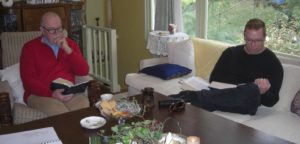
Canberra Meeting Reflections
William Wentworth's Reflections
 One of the first statements made by the Divine Counselor is that the best guide we can have to the nature of God is our Creator Son’s revelation of the Father in his incarnation here on Urantia. This is the generalisation which we must bear in mind if we are to understand much about God. One of the first statements made by the Divine Counselor is that the best guide we can have to the nature of God is our Creator Son’s revelation of the Father in his incarnation here on Urantia. This is the generalisation which we must bear in mind if we are to understand much about God.
There was also the reminder that God fully understands himself, and being infinite, is capable of meeting any need required of him.
However, this infinity of his nature requires that he must downstep his infinity and absoluteness in order to make contact with the creatures brought into being by the Creator Sons such as Michael of Nebadon and the hundreds of thousands of other Michael sons. Because fatherly love is the very nature of God, he wants to be in contact with these creatures who are all less than infinite, being finite or absonite.
He arranges for this necessary downstepping in many ways, the three most important from the creature perspective being:
- The Paradise Sons who create the local universes are close to the creatures they create, and even live among them in their bestowals, which are requirements of their acquiring sovereign status within their universes.
- He downsteps himself in the personalities of the Infinite Spirit so that these personalities can guide and assist mortals in their experience of evolution as they seek for truth, beauty and goodness. This is particularly true of the seraphim, the children of the local universe Mother spirit, who are only a little above mortal status, and who thus can understand us readily.
- In the bestowal of thought adjusters, pre-personal fragments of himself, God actually lives within our minds, always being subject to our personal will, but constantly attracting us to his perfection. And of course, once our growth has proved adequate, this same adjuster fuses with us, and our long path to God and Paradise is assured.
In pointing out the perfection of God the Divine Counselor reminds us that God is changeless. He knows everything and regrets nothing. It is therefore quite pointless for creatures to expect God to change in order to gratify some creature whim or other. God’s justice and his mercy are not contradictions. He knows we are imperfect, and thus make mistakes, but his justice maintains perfection, and his mercy is his response to imperfection. His love forgives us who make the mistakes, and his justice corrects the damage our mistakes have made – with those time lags concomitant with finite existence.
It was a little unexpected to find in one of the final paragraphs a criticism of the Hebrew religion. It is very instructive that this should appear in the paper about the nature of God. We are informed often in the papers of the object of a balanced existence consisting of the search for truth, beauty and goodness. The Divine Counselor regards the Hebrew religion as being unbalanced in that it promotes only goodness, while ignoring truth and beauty. To the extent that this unbalance carried over into Christianity, the loyalty of modern men has been substantially lost. The recovery of this balance may possibly attract some who consider themselves atheists to reconsider. Truth is beautiful and good, beauty is good and true, and goodness is true and beautiful.
When truth, beauty and goodness are blended in personality, the result is love conditioned by wisdom and qualified by loyalty. Almost sounds Godlike, doesn’t it?
--------------------------------
Vern Verass' Reflections
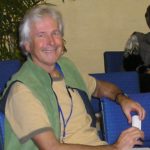 The nature of God is stated in the first paragraph and established as the parent-child relationship with all creatures gifted with personality. This fact is the foundation of faith. The nature of God is stated in the first paragraph and established as the parent-child relationship with all creatures gifted with personality. This fact is the foundation of faith.
The most profound manifestation of God – when God becomes a man – that man is Jesus.
…the most enlightening and spiritually edifying of all revelations of the divine nature is to be found in the comprehension of the religious life of Jesus of Nazareth… [Paper 2:0.2, page 33.2]
Revelation teaches each of us that God has become one of us and has lived a mortal life as we all do, attained perfection to the exhaustion of the potentials of supremacy as is open to all who choose to live by faith in the Universal Father. Wholehearted consecration of will to the doing of the Father’s will – consecration of choice.
Faith most willingly carries reason along as far as reason can go and then goes on with wisdom to the full philosophic limit; and then it dares to launch out upon the limitless and never-ending universe journey in the sole company of TRUTH. [Paper 103:9.7, page 1142.5 emphasis added]
This paper endeavors to enlarge the reader’s human concept of God by employing the crude mechanism of word symbols, “…human word symbols certain ideas and ideals concerning the divine nature…” to gain registry in the reader’s mind. After all, the recognition response is dependent on lessening of resistance to the appeal of the indwelling spirit – an exercise of faith. The Divine Counselor acting by authority of the Ancients of Days on Uversa, who is the author of this paper is aware of mortal limitations – the attempt to impart truth to a creature of the lowest universe status with capacity to comprehend God – an animal-origin mortal – yet, still mostly animal in nature. The Divine Counselor frankly states,
…efforts to enlarge the human concept of God would be well-nigh futile except for the fact that the mortal mind is indwelt by the bestowed Adjuster of the Universal Father and is pervaded by the Truth Spirit of the Creator Son… [Paper 2:0.3, page 33.3]
… animal-origin peoples. Only once in his sevenfold career as a bestowal Son is a Paradise Michael born of woman as you have the record of the babe of Bethlehem. Only once does he live and die as a member of the lowest order of evolutionary will creatures. [Paper 21:4.3, page 239.9 emphasis added]
In effect, what the content of this paper is saying, humble acceptance of sonship is a prerequisite to enlightenment:
“The kingdom of God is within you” was probably the greatest pronouncement Jesus ever made, next to the declaration that his Father is a living and loving spirit. [Paper 195:10.4, page 2084.4 emphasis added]
Upon such a basis the Divine Counselor cheerfully carries on with the attempt at enlightenment of the mind of the reader
“…I cheerfully undertake the execution of my mandate to attempt the further portrayal of the nature of God to the mind of man…” [Paper 2:0.3, page 33.3]
What follows is illuminative of the following characteristics of the Divine nature:
Infinity of God
“…He is the beginning and the end, the Father of every good and perfect purpose.” “With God all things are possible; the eternal Creator is the cause of causes.” [2:1.2, 34.1]
Perfection of God
“…God is literally and eternally present in his universe of universes. He inhabits the present moment with all his absolute majesty and eternal greatness”. “The Father has life in himself, and this life is eternal life.” Throughout the eternal ages it has been the Father who “gives to all life.” “…The perfection of divinity and the magnitude of eternity are forever beyond the full grasp of the circumscribed mind of mortal man…”
This is the true meaning of that divine command, "Be you perfect, even as I am perfect," which ever urges mortal man onward and beckons him inward in that long and fascinating struggle for the attainment of higher and higher levels of spiritual values and true universe meanings. This sublime search for the God of universes is the supreme adventure of the inhabitants of all the worlds of time and space. [Paper 1:0.6, page 22.3 emphasis added]
Justice and Righteousness of God
“…The justice of the Universal Father cannot be influenced by the acts and performances of his creatures, “for there is no iniquity with the Lord our God, no respect of persons, no taking of gifts.”
Supreme justice is dominated by a Father's love; therefore will justice never destroy that which mercy can save. Time to accept salvation is vouchsafed every evildoer. [Paper 54:5.3, page 717.3 emphasis added]
God’s Mercy
“…Mercy is simply justice tempered by that wisdom which grows out of perfection of knowledge and the full recognition of the natural weaknesses and environmental handicaps of finite creatures…”
God’s Love
“…The experience of loving is very much a direct response to the experience of being loved. Knowing that God loves me…” “…God is love, but love is not God.
…The infinite love of God is not secondary to anything in the divine nature. [Paper 188:4.8, page 2017.3 emphasis added]
God’s Goodness
“…religion is a faith-trust in the goodness of God…”, “…in religion God must also be moral; he must be good. Man might fear a great God, but he trusts and loves only a good God…”, “…God as a father transcends God as a judge…”, “…The goodness of God rests at the bottom of the divine free-willness — the universal tendency to love, show mercy, manifest patience, and minister forgiveness…”
Divine Truth and Beauty
All truth — material, philosophic, or spiritual — is both beautiful and good. All real beauty — material art or spiritual symmetry — is both true and good. All genuine goodness — whether personal morality, social equity, or divine ministry — is equally true and beautiful. Health, sanity, and happiness are integrations of truth, beauty, and goodness as they are blended in human experience. Such levels of efficient living come about through the unification of energy systems, idea systems, and spirit systems. [Paper 2:7.11, page 43.4 emphasis added]
Reading this paper has been an education
The real purpose of all universe education is to effect the better co-ordination of the isolated child of the worlds with the larger realities of his expanding experience. [Paper 2:7.12, page 43.5 emphasis added]
New Zealand Meeting Reflections (see 2021 New Zealand Corner)
By Marin Steward
We began reading Paper 2, The Nature of God for the Study Day, and came across the recurrent theme of the challenge presented to the revelators by the “limitations of language” (2:0.3, 33.3). As a language teacher, I am very aware of how the words and phrases in a language reflect a culture and a way of life; people develop ‘word symbols’ to represent actions, objects, ideas and concepts that are present and important in their lives and that they wish to share with those they live with. The lack of words and phrases in the English language to represent advanced spiritual concepts that we, as finite beings, are incapable of understanding, is to be expected. As our understanding deepens, we will develop the words to represent those understandings, long before we go to the mansion worlds and are taught the local language of Nebadon.
It is a strong feature of languages that they grow and change as new objects and ideas develop; the tendency in the English language is to re-purpose words – ‘eyeball’ used to be a noun, and is now also a verb, just as one example. And consider the phrase at the beginning of this article: “pause the Trans-Tasman travel bubble” – in January 2020 this would have had no meaning whatsoever, but now it has a very distinct meaning which is understood by everyone in this part of the world.
|
|
(Editor’s Note: Mining the Archives is a collection of articles that have been published in various newsletters over the years and have been lying buried in the archives. A team of volunteers have been “mining the archives” for the gems, so now we can bring them into the light of day to share using modern-day technology. This one is from Innerface Newsletter, September 2002. Additional note: The next two articles in this issue of Arena-Winter 2021 by William Wentworth and Nigel Nunn are thoughts inspired by this 2002 article of Gen Glasziou’s.)
Mathematics and Science Catch up with The Urantia Book
The Late Ken Glasziou, Qld
In the mortal state, nothing can be absolutely proved; both science and religion are predicated on assumptions. [Paper 103:7.10, page 1139.2]
In 1935 that statement could only have been made with confidence by a handful of our most learned men.
The foundation for logical thinking was laid by the Greeks way back in ancient times. Initially they were trying to formulate the guiding principles of discourse—which gradually broadened into Aristotelian logic, the latter work holding sway for almost two thousand years.
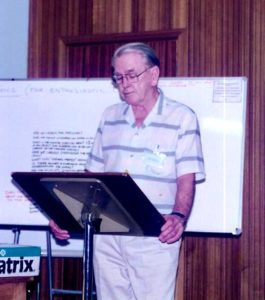 Isaac Newton started a revolution when he converted physics into a branch of mathematics. For scientists this meant that Euclidian geometry having for its foundation a set of axioms held to be self-evident and not requiring formal proof was also a foundation stone of their physics. Isaac Newton started a revolution when he converted physics into a branch of mathematics. For scientists this meant that Euclidian geometry having for its foundation a set of axioms held to be self-evident and not requiring formal proof was also a foundation stone of their physics.
A major work to put mathematics on a more reliable foundation was undertaken by the outstanding German mathematician, Gottlob Frege, who had already published the first volume of a highly acclaimed work and had the second ready for press when a short letter from Bertrand Russell pointed out what would seem to be a trivial and unimportant question. “Is the set of all sets a member of itself?” This apparently harmless question completely undermined Frege’s work and caused him to add an admission to his second volume that the whole of the work was now useless.
Next on the list of similar calamities was Principia Mathematica, an enormous work by Whitehead and Russell which apparently found a way around Frege’s problem but later fell victim to the work of Kurt Gödel in 1929. Effectively Gödel’s work means that any system of axioms that is complete enough to be useful cannot do otherwise than contain unprovable truths. So how can we know whether they are true truths? Practically this means that each system must be subjected to rigorous experimental testing. It also means that we have no way of guaranteeing that a flaw will not appear at some future time—we can never be absolutely certain that it will not.
Over the last seventy years there has been no successful challenge to Godel and in fact his work has been both substantiated and extended. But the reality is that the vast majority of those working in science and mathematics have chosen to ignore Gödel and continue on with the dream of a final unified theory made popular during more than twenty fruitless years of searching by the great Einstein.
Among the relatively recent work has been that of Paul Cohen who extended the Gödelian approach to include set theory, and Alan Turing who discovered that there is a “stopping” problem with computers. Turing asked the question of whether or not there is some way to predict beforehand whether a computer program will find an answer and stop or whether it will go on forever. His answer was there is no way of knowing. Besides its deeper theoretical ramifications, this apparently simple “stopping” problem, of no importance to you and me, certainly is important to the administrator who has the task of allocating extremely expensive supercomputer time to those with the need.
Among those who have sought answers is Gregory Chaitin, an IBM research mathematician who asked if there is no way to get a yes or no answer, is there at least some way to estimate the probability that a program will or will not stop. Chaitin spent twenty years working on this problem before finally coming up with a number he termed omega having a value between 0 and 1 that measures this probability—but, alas, its binary digits were found to be random and independent. More importantly than computer stopping, the randomness of the digits of Chaitin’s omega imposes limits on what can be known from number theory, which in turn, leads to the conclusion that randomness is the true foundation of mathematics.
That may sound far-fetched but on further reflection surely is in accordance with experience. One mathematician puts it this way, “It means that a few bits of mathematics may follow from each other, but for most situations those connections won’t exist. All a mathematician can do is to aim to find the little bits that do tie together, hence that solvable problems are like a small island in a vast sea of undecidable propositions.”
The basis of physics, in fact of all science, is mathematics. Hence the conclusions regarding the inconclusiveness of mathematics flow on to all other science—which is perhaps what we have always known intuitively.
There is a theory which states if anyone discovers exactly what the universe is for and why it is here, it will instantly disappear and be replaced by something even more bizarre and inexplicable. There is another theory which states this has already happened. (Douglas Adams, 1952-2001, The Hitchhiker’s Guide to the Galaxy)
|
|
William Wentworth, Canberra …to Cosmology in The Urantia Book
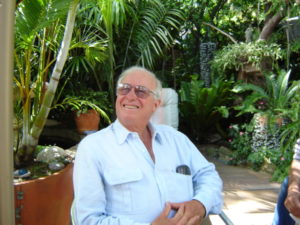 Ken Glasziou was a scientist who took pains to make his reasoning comprehensible to the general reader. As one of those general readers, I was often interested in what he had to say. Recently my attention was drawn to something he wrote in an article he wrote in 2002 titled “Mathematics and Science Catch up with The Urantia Book” where he was pointing out the significance of mathematics and some of its limitations as well. Ken Glasziou was a scientist who took pains to make his reasoning comprehensible to the general reader. As one of those general readers, I was often interested in what he had to say. Recently my attention was drawn to something he wrote in an article he wrote in 2002 titled “Mathematics and Science Catch up with The Urantia Book” where he was pointing out the significance of mathematics and some of its limitations as well.
Science develops so rapidly that I don’t really know whether his comments are still relevant, but it led me to think about the application of scientific thinking to cosmology as The Urantia Book explains it.
Scientists have been trying to develop a theory which accounts for everything in the cosmos, both large scale and small, from the largest clusters of galaxies to the smallest particles within atoms. Some of the most accomplished physicists and mathematicians have given themselves to this effort, so far without success, since they restrict themselves to consideration of only a part of the whole of which the cosmos consists.
While they have developed some of the most amazing methods to measure both sub-atomic particles on the one hand, and enormous aggregations of matter on the other, they have not been able to blend them into a unified theory which accounts for all the measurements. There always seems to be something which doesn’t fit.
Because science and mathematics are so intertwined, scientists have been attempting to treat cosmology as if it were an aspect of material science. They think that with enough measurement and mathematical ingenuity, a theory of origin, function and evolution of the material cosmos can be derived which accounts for past, present and future—and all the unexpected variations of phenomena—within a self-contained mathematical system which is both self-evident and self-explanatory.
They expect to be able to understand and generate life, and they see purpose and destiny as being artefacts of creature whims because they reject teleological notions of development as delusions.
Students of The Urantia Book will see immediately that there are problems with this view. As regards life, the book states bluntly that science will never be able to create it, no matter how much more closely scientists think they approach it. As a Mighty Messenger says:
Subsequent to even still greater progress and further discoveries, after Urantia has advanced immeasurably in comparison with present knowledge, though you should gain control of the energy revolutions of the electrical units of matter to the extent of modifying their physical manifestations — even after all such possible progress, forever will scientists be powerless to create one atom of matter or to originate one flash of energy or ever to add to matter that which we call life. [Paper 42:1.4, page 468.1]
As regards purpose and destiny, the book has quite a bit to say. As a Divine Counsellor says:
Even in the study of man’s biologic evolution on Urantia, there are grave objections to the exclusive historic approach to his present-day status and his current problems. The true perspective of any reality problem — human or divine, terrestrial or cosmic — can be had only by the full and unprejudiced study and correlation of three phases of universe reality: origin, history, and destiny. [Paper 19:1.6, page 215.3]
The proper understanding of these three experiential realities affords the basis for a wise estimate of the current status.
But before getting into that, it is important to remind readers that the book does give scientists their due. For the study of purely material phenomena, science has done wonders for us mortals. Not only has it been responsible for the comforts and opportunities of western civilization, but it has, in the process, destroyed much of the superstitious ignorance which impeded cultural development and was responsible for so much human misery in the pre-scientific ages. With the application of rational intelligence to theology, beginning with thinkers like Thomas Aquinas in the early centuries after the crucifixion, the logic of Aristotle began once again to be studied. The difficulty was always that anything a bit different or unorthodox tended to be classified as heresy, with immediate attempts to snuff it out by almost any means, costing quite a few “heretics” their lives. The only acceptable approach to Christianity and the Church was revelation. But after a while it came to be accepted that there was some rational thought about Christianity and the church which was acceptable. It was thus that it came about that science was born within Christianity. The subsequent “Enlightenment”, which much later became in the end a rejection of God’s influence over the cosmos, and eventually a denial of the very existence of God, constituted a revolution in scientific thought, which The Urantia Book sees as bestowing some benefits which we should not be too quick to discard. Nevertheless, it has deprived science of the insight which would have prevented its self-self-limitation to just the realm of matter/energy.
Material science has had its successes in the depiction of matter/energy. This is the realm where rational thought and mathematics are supreme. Theology and superstition are no way to study the material cosmos. As the Midwayer Commission points out:
Secularism can never bring peace to mankind. Nothing can take the place of God in human society. But mark you well! do not be quick to surrender the beneficent gains of the secular revolt from ecclesiastical totalitarianism. Western civilization today enjoys many liberties and satisfactions as a result of the secular revolt. The great mistake of secularism was this: In revolting against the almost total control of life by religious authority, and after attaining the liberation from such ecclesiastical tyranny, the secularists went on to institute a revolt against God himself, sometimes tacitly and sometimes openly. [Paper 198:8.6, page 2081.6]
That said, however, the ambition to develop a unified theory to explain the cosmos by means of the study of its material aspects remains an impossible dream. As The Urantia Book explains, the reality which is assumed by science is actually only a portion of the whole, and even that portion has its origin in a supermaterial reality. The revelators explain that the original situation is one in which there is nothing but pre-God—an infinity which constitutes the potential of God. The revelators point out that this infinity, which they call the I AM, is all that exists. There is no void, or space, or anything at all except I AM, and I AM self-metamorphoses into everything which can be conceived of as real.
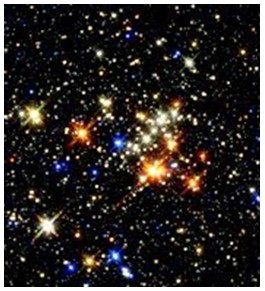 As a consequence, there is nothing which is not composed of I AM in some form. All matter, mind, Spirit and personality consist of I AMness. Nothing can be excluded because there is nothing else. Everything is composed of some metamorphosis of I AM. And this includes the material cosmos which is assumed by material science. But, of course, it also includes much more than the material cosmos which science assumes to be all that there is. It includes spirit, mind and personal realities which science ignores. As a consequence, there is nothing which is not composed of I AM in some form. All matter, mind, Spirit and personality consist of I AMness. Nothing can be excluded because there is nothing else. Everything is composed of some metamorphosis of I AM. And this includes the material cosmos which is assumed by material science. But, of course, it also includes much more than the material cosmos which science assumes to be all that there is. It includes spirit, mind and personal realities which science ignores.
In asserting this, however, we need to be careful not to fall into the error of Pantheism. The metamorphosis of I AM involves a separation of that part which contains the potential of Deity from all the rest. The potential of Deity is referred to as the Deity Absolute, while everything non-deified remains as the Unqualified Absolute, and it is within this Unqualified Absolute that the potential of the material cosmos is contained. The materialistic cosmos thus is not deified, and the mistaken notion of Pantheism that it is part of Deity must be rejected. The material reality, although derived from the I AM, is not part of Deity. It is a consequence of the action of Deity, but of itself is not deified.
The non-deified potential of the material cosmos is activated by a further metamorphosis in which Deity causes the personal aspects of itself to appear as the Eternal Son, thus establishing the Father as personal, while actualising Paradise as the controller of the material cosmos. We can thus view the material cosmos as a mechanism, and at first sight this would suggest that the ambition of science to formulate a self-contained unified theory is reasonable. But science is unaware of the fact that the mechanistic controller, Paradise, is itself caused by Deity, and ultimately is responsive to Deity. The Universal Father, acting through the Trinity, could exercise direct control of the functions of Paradise, but he doesn’t need to because Paradise has been so expertly designed that it needs no supervision.
There are aspects of Deity which are not personal. These other realities are the properties of those metamorphoses of I AM which give rise to Deity, and as the revelators explain, Deity contains personality which manifests as God, the Universal Father. Deity propagates spirit through the Eternal Son, who is personalised by God, and also mind through the Infinite Spirit, likewise personalised by God, thus allowing spirit and matter to interact. The fact that these personalisations of Deity are unified in the Trinity in no way lessens the control of God. He could perform the functions of spirit and mind if he chose to but does not need to because the other persons of Deity do it so well that there is no need for him to interfere. As a Universal Censor points out:
The Universal Father, the Eternal Son, and the Infinite Spirit are unique persons; none is a duplicate; each is original; all are united. [Paper 10:2.6, page 110.4]
God is the personality of Deity, but there is still much of Deity which is not personal. There are such things as the presence circuits of the Eternal Son and the Infinite Spirit, spirit and mind gravity, the circuits of the Reflective Spirits, the Cosmic Mind of the Master Spirits, and no doubt much more. These phenomena are deity, but not personal, and thus not God.
Destiny is to allow spirit to dominate matter through mind as directed by personality, and from this can be derived some aspects of God’s purpose. But to material science, destiny and purpose are figments of mortal mind. Science recognises mind but regards it as simply the output of the mortal brain. Certainly, the mortal brain does exhibit some measurable output, but that is only a fraction of its function which science mistakes for the whole. As a consequence, science regards questions of destiny and purpose as purely subjective expressions of mortal minds and dismisses them as teleological delusions.
It is clear then, without labouring the point, that reality is a far more complicated phenomenon than that assumed by material science. That being the case, it is hardly surprising that science is unable to formulate a description of reality which covers all their measurements, is self-consistent and contains no teleological assumptions. It seems likely that science will struggle with this until it is prepared to accept that the material cosmos has supermaterial antecedents and consequences which can be approached only by revelatory techniques.
It took many centuries for the reverse to happen—that is for revelatory techniques to be prepared to accept reason as a legitimate approach to reality. Will it take as long for reasoning to accept revelatory techniques as a legitimate approach to scientific reality?
|
|
Nigel Nunn, ACT 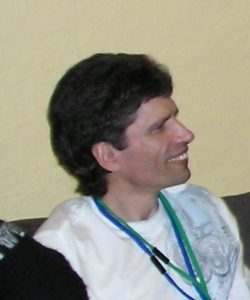 Interesting development: for 40 years cosmologists have been arguing about the best way to simulate (1) the clustering of galaxies and (2) the flat rotation curves of spiral galaxies. Invisible (dark) matter works well for explaining the clustering, but modified Newtonian gravity works better for spiral galaxies. Interesting development: for 40 years cosmologists have been arguing about the best way to simulate (1) the clustering of galaxies and (2) the flat rotation curves of spiral galaxies. Invisible (dark) matter works well for explaining the clustering, but modified Newtonian gravity works better for spiral galaxies.
Around 2015, researchers began to take seriously the idea that there might be at least two distinct types of invisible mass: one kind that forms halos around galaxies, and another that forms a superfluid disk of axion-like particles within galaxies. This is very nearly the exact same picture presented in The Urantia Book: halos of segregata, within which whirlpools of ultimata form.
This kind of two-phase model for dark matter has now reached the pop.sci domain: in the links below, Sabine Hossenfelder sketches the idea. See especially from time 9:10 in the video, where she proposes that all we need are (1) a new field and (2) a new particle formed by a phase transition of that field. Her “field” becomes our pool of segregata, and her “particle” becomes our quantized vortex in that field, the ultimaton.
Video: YouTube – Sabine rethinks dark matter
Transcript: Dark Matter – the situation has changed
Of course one significant difference is that The Urantia Book uses those axion-like particles as “preons” with which to build standard model particles – leptons and quarks – clusters of clusters of huddling ultimatons. Stay tuned!
For those interested, the YouTube videos in this PlayList step through the details:
Urantia Book Physics and Cosmology
As I try to show in these videos, in 1934 The Urantia Book appears to have given us just enough to solve the central mysteries of physics and cosmology, at the very same time they were first identified.

|
|
Marion Steward, Auckland, New Zealand A Never-Ending Adventure
[This article is based on a presentation made as part of Urantia Association’s Urantiathon, held on 30 January, 2021]
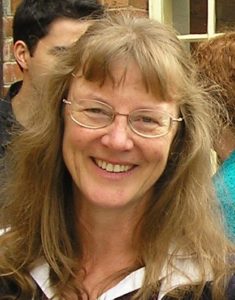 Diversity is one of the dominant aspects of the universe as described in The Urantia Book. It pervades all of the grand universe, including spiritual and ascending beings and the physical environments. Diversity presents challenges to us all as we go about our daily lives, but because of its never-ending and constantly expanding presence, it is very important to learn how to deal with it here on Urantia in preparation for our future universe career. Diversity is one of the dominant aspects of the universe as described in The Urantia Book. It pervades all of the grand universe, including spiritual and ascending beings and the physical environments. Diversity presents challenges to us all as we go about our daily lives, but because of its never-ending and constantly expanding presence, it is very important to learn how to deal with it here on Urantia in preparation for our future universe career.
The article will first outline the scope and range of diversity in the Universe, and portray just how individual and varied almost everything is. It will focus first on what can be called outer diversity – how the appearance and form of almost everything and every living being varies in the universe, and of course on our planet. This will be followed by a brief overview of what I have called inner diversity, which is some of the main ways in which people can vary, including mental, emotional, social, racial, cultural and personality. The next section will discuss how diversity is part of God’s plan for the universe, and is never-ending, followed by a brief outline of how this diversity presents challenges to us in the world today. Finally, there will be a discussion of what Jesus had to say about this aspect of life, and how his advice might be applied, in very broad terms. to the situations we might find ourselves in in our everyday lives.
Outer Diversity in the Universe
 In terms of appearance and form, diversity and uniqueness begin with Havona. In this central universe which surrounds the Isle of Paradise, there are one billion words, each of which is unique. In terms of appearance and form, diversity and uniqueness begin with Havona. In this central universe which surrounds the Isle of Paradise, there are one billion words, each of which is unique.
The architecture, natural embellishment, morontial structures, and spirit creations are exclusive and unique on each sphere. Every world is a place of everlasting beauty and is wholly unlike any other world in the central universe. [Paper 18:2.4, page 209.2 emphasis added]
A consideration of this fact highlights the incredible range of variation that is possible when it comes to the physical worlds.
The Creator Sons and their local universes continue this theme.
…each [Creator Son] is unique, diverse, exclusive, and original in nature as well as in personality. And since they are the architects and makers of the life plans of their respective realms, this very diversity insures that their domains will also be diverse in every form and phase of Michael-derived living existence which may be created or subsequently evolved therein. [Paper 21: 2.9, page 236.7]
It is clear that all the spiritual beings created to run our universe, and every other living creature on every planet, will be a bit different to each other, and different from equivalent beings in other local universes.
Mortal Physical Diversity
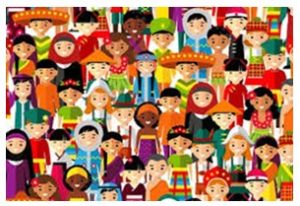 Then, when it comes to ascendant beings on the planets, the same approach of constant variety is very evident, and even more so on Urantia, due to our status as an ‘experimental’ planet. Then, when it comes to ascendant beings on the planets, the same approach of constant variety is very evident, and even more so on Urantia, due to our status as an ‘experimental’ planet.
The Urantia Book tells us that there are basic life patterns, but lots of variation.
[The Life Carriers] foster a generalized system type of mortal creature, but there are seven distinct physical types as well as thousands upon thousands o minor variants of these seven outstanding variations
[Paper 49:2.1, page 560.7].
These types vary in a number of ways, including atmospheric types, elemental types and gravity types. This leads to such fascinating beings as non breathers, and mortals who can navigate the air or the water, as well as one, two and three brained people.
On top of all this, there are the racial variants, possible the most visible aspect of diversity on our planet. We had six, in the Sangik family, and most planets have either three or six (64:6.26; 726.2).
Inner Diversity
In addition to the wide scope of visible diversity, there is an even greater range when it comes to less visible aspects of intelligent beings in the universe. The most powerful is personality. Of all the things that add to the diversity of individual mortals across the Grand Universe, the most significant and influential is the uniqueness of each God-given gift of personality.
[Personality] is unique, absolutely unique. It is unique in time and space; it is unique in eternity and on Paradise; it is unique when bestowed – there are no duplicates; it is unique during every moment of existence; it is unique in relation to God… [Paper 112:10, pages 1226-1227.10].
So the point is emphatically made that each of has an utterly unique personality, which will affect everything about how we see and react to the world around us.
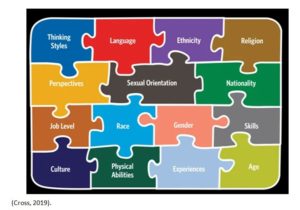 In addition to personality, many other aspects will also influence who and how we are, including race, family, culture and many other things. These are illustrated in this diversity jigsaw. In addition to personality, many other aspects will also influence who and how we are, including race, family, culture and many other things. These are illustrated in this diversity jigsaw.
This is a fairly thorough overview of the main aspects of variation. Most of them are straightforward and need no explanation. Thinking styles refer to the different ways that people approach a task, which can be analytical, critical, creative or divergent. Ethnicity and Race are noted as 2 separate aspects. Definitions of these aspects vary enormously in themselves, but one simple definition is that Race relates to physical traits, while Ethnicity refers to a broader range of commonalities in a group, including race, and also culture and religion.
Diversity As Part of God’s Plan
All of the above information and many other statements and descriptions in the Urantia Book show that diversity is very much a linchpin of the Divine plan of creation. After all, the original act of Creation (acknowledging that this did not actually happen linearly) was one where the First Source and Centre decided to diversity him/herself. This focus on individuality, uniqueness and constant diversification pervades the universe, and even when beings are created or eventuated as perfect beings for their function, they still manage to become individualised.
Creature-trinitized sons are an extraordinary example of the constant diversification of creation. This is where two mortal finaliters, who have ‘independently come up with an original concept, that has not been trinitized before”, are given permission to create a being who embodies this concept (22:7, 249-250). So even a new, original thought can become an independent living being.
And all of this diversification is a never-ending process.
And it is altogether possible that the continued diversification of the original reality of the First Source and Center may proceed onward and outward throughout age upon age, on and one, into the faraway and inconceivable stretches of absolute infinity [Paper 105:7.8, page 1160.7].
The Never-ending Adventure
So God creates the universe to be richly and eternally diverse, and intentionally ensures that each living being of the uncountable and ever increasing number of beings in unique in some way, then also ensures that these beings, particularly the mortal ascendant ones, are required to learn how to work together to achieve group goals and tasks.
One of the most important lessons to be learned during your mortal career is teamwork. The spheres of perfection are manned by those who have mastered this art of working with other beings [Paper 28:5.3, page 312.2].
Luckily, guides and teachers are also provided, as this is quite a daunting task. On the planets and the mansion worlds, there are racial interpreters and race commissioners.
On the worlds of time the seraphic racial interpreters further the efforts of the race commissioners to harmonise the varied viewpoints of the races, and they continue to function on the mansion worlds, where these same differences tend to persist in a measure [Paper 48:6.2, page 553.3].
Even after fusion with our Adjusters, this process of learning to work with others continues. Post-fusion, an ascending mortal is described as “a candidate for further growth and development” (112:7.9, 123.4).
A key part of this further growth appears to be the continuing training in working with other diverse beings.
[On Jerusem] you achieved the willingness to submit the self to the disciplines of group activities and co-ordinated undertakings; but now on the constellation training worlds you are to achieve the real socialization of your evolving morontial personality [Paper 43:8.4, page 494.4].
This paper gives a very detailed description of this training, which is conducted by the Univitatia, children of the Creator Son and the Creative Spirit. There are, naturally, 70 diverse orders of personality of Univitatia, and their purpose is to preside over the special training and cultural schools on the Edentia training worlds. Our training consists of a series of placements among Univitatia. We must “live happily and work effectively” with 10 univitatia, at first, and then over time more of our fellow morontial mortals join us until there are finally 10 morontial mortals and 10 univitatia in the same group, who are all abiding joyfully and co-operating heartily! (43:8.1 and 494.1-7). This section refers quite realistically to the need to improve our ability to live with diverse beings with “ever-lessening irritability and ever-diminishing resentment”. It is not difficult to project this experience on to Havona and then our adventures as finaliters, bearing in mind that we are never sent back to the same superuniverse we came from, and each superuniverse is different from the others.
The Challenges of Diversity on Urantia
In the section on the different coloured races on Urantia, and on other planets, one of the stated reasons for doing it this way is “the development of human tolerance and altruism” (64:31, 726. 3&4).
Elsewhere it is also stated that the material-comfort era in which we live is often characterized by intolerance (50:5.3, 577.2).
It would appear, then, that intolerance of diversity is the one of the greatest challenges we face in our career on Urantia. Intolerance is defined as “unwillingness to accept views, beliefs, or behaviour that differ from one’s own” [Google dictionary], and in The Urantia Book, it is described as “everlastingly inimical to human progress” (71:3.2, 803.2). These are strong words indeed, and yet we live in a world where intolerance is as pervasive as diversity, as a quick scan of news articles on any day will highlight.
The jigsaw pieces of human variation shown above illustrate all the triggers of intolerance in our world.
This is currently being exacerbated by the increasing and more visible diversity on the planet. The Internet, in particular social media, makes diversity more visible. Increased migration, including more and more refugees, are forcing societies that were previously much more homogenous to adjust to groups of people from very different cultures. In addition to this, there is increasing acknowledgement and legal protection of a range of individual differences in more and more countries- some examples of this are homosexual law reform, the legalising of same sex marriages, and the legalisation of prostitution in New Zealand in recent years, all of which many people find extremely difficult to accept and/or tolerate.
Advice from Jesus on How to Meet These Challenges
How can these challenges be met successfully? How can intolerance be reduced so that the human race can make progress? Jesus discussed this on a number of occasions with the apostles, who did not have the same views about many things. His advice was that they did not have to have the same opinions in order to achieve shared goals. Here are two of his comments to them:
“The religion of the spirit requires only unity of experience – uniformity of destiny – making full allowance for diversity of belief” [Paper 155:6.9, page 1732.2].
“You do not have to see alike or feel alike or even think alike in order spiritually to be alike” [Paper 141:5.1, page 1591.6].
Having the same purpose and the same ideals seems to be one of the best ways to move forward – to aim for unity, not uniformity.
Diverse opinions are inevitable and need to be expected and accepted as part of the rich diversity of creation.
What About Non-spiritual Unity?
Often the group you are in where differences are apparent and perhaps causing friction does not have a spiritual aspect to it. This group might be at work, sport, or in a social context, in which case other non-spiritual things that can provide this unity need to be identified, such as a shared purpose, a common ideal, some other commonality in the group that can overcome intolerant reactions.
In my experience, this is a slow, piece by piece growth, and can take time. I would like to share an example of this from my own life. It relates to a cultural difference at my work, which also has a spiritual aspect to it.
I work at a vocational institute which is government funded, and in New Zealand, this means that we are required to acknowledge and accommodate the customs and culture of Maori and Pacific Islands people. One of the customs is to open and close every meeting with a prayer. When this became common, required practice at all meetings I initially found this quite challenging. I realised after some reflection that my resistance to this practice stemmed from my English background and study of history at school, during which I had quite unconsciously absorbed the notion that the separation of church and state was the proper state of affairs. The ‘state’ included the secular domain of employment, so including religious prayers in a work meeting seemed quite misplaced to me.
However, a year or so ago, I was placed in a team of lecturers from different Pacific Islands, who placed high priority on the importance of beginning and ending every meeting we had with a prayer. These prayers were always in their languages, but the Samoan lecturer would translate for my benefit, and I noticed that the prayers would always include a blessing on us all, including myself. This felt very supportive and warm, and my resistance to prayers at work meetings slowly began to fade, not only because of the blessings, but also because I began to appreciate the value of this custom, in focusing every member of the team on the purpose of the meeting, and then at the end expressing thanks for everyone’s contributions. I could see the effect in building the sense of ‘team’, and the focus on our purpose for being together.
This process of slowly changing my intolerance to tolerance took more than a year, and I realised how much I had progressed when I recently found myself actually opening a meeting I was chairing with a prayer, which was calmly accepted by all attendees – I had moved from resistance and antagonism to tolerance, acceptance, and finally adoption of a different custom.
Equally importantly, I learned that accepted a cultural difference takes time, willingness to understand and experience.
Conclusion
The key points I would like to emphasise are as follows:
- The Universe is extremely diverse in every way by design.
- We need to develop a perspective/mindset that is open and accepting of differences to prepare us for our eternal career.
- Learning to function effectively with diverse beings enriches and expands our abilities and our understanding exponentially.
Recognition that this is not an easy task is shown by the fact that there are lots of heavenly helpers who will guide us along the way, such as the racial interpreters and the univitatia.
- A focus on something that unifies us will help us overcome the innate tendencies of mortal creatures to reject/oppose differences.
The acceptance of differences, one by one over time, will help us in our own personal development – as I tried to show by sharing my own experience.
This article is based on a presentation made as part of the recent Urantiathon, held on 30 January, 2021. The theme of this 24 hour online event was Faith, Joy and Peace. My final statement pays homage to this theme:
If we have faith in God’s eternal plan, and work steadfastly to overcome intolerant thoughts and behaviour, then, with each victory we will experience both joy and peace – until the next challenge comes along!
References
Cross, L. W. (2019). Fostering an inclusive classroom: A Practical Guide. PECOP Blog. https://blog.lifescitrc.org/pecop/tag/diversity/
|
|
Neil Francey, QLD (Editor’s note: This is an introduction to another well-researched study project undertaken by Neil Francey. Click on the links at the end to see the complete work.)
The Harmonious Balance of Our Physical, Mental and Spiritual Energies
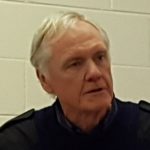 The Papers in The Urantia Book teach personal growth as the proportional expansion of the whole self. This creates the balance necessary to make progress towards self-mastery in all aspects of our living and being. That is, the harmonious balance of our physical, mental, and spiritual energies. The Papers in The Urantia Book teach personal growth as the proportional expansion of the whole self. This creates the balance necessary to make progress towards self-mastery in all aspects of our living and being. That is, the harmonious balance of our physical, mental, and spiritual energies.
Books and courses which offer self-development are usually limited in their scope, and can often omit the appeal to, and nourishment for, our spiritual natures. True Success is a course that corrects that deficiency as it incorporates the spiritual dimensions as portrayed in the Urantia revelation.
True Success collates text in a study format by topic. This allows readers to gain an appreciation of some of the key concepts in the revelation. Preference is given to quotations that are relative to our everyday activities.
True Success completes the Trilogy of Topical Studies by Neil. The other two works are: Mota-vation and Universal Ethics.
Excerpts from the Summary Part 1 of True Success
A New Philosophy
We need to distinguish between the realities of the material and the spiritual worlds while realizing their unification. Cosmic insight can then be applied to the way we react emotionally to our social and economic circumstances.
Action Living
Practice of worship, union with divinity, we gather strength and wisdom. In this way, we can install a philosophy of living in the place of religious authority.
Be Perfect
It is the purpose of the long career of all mortals to ascend by personal choice and effort to find our individual self and our own journey to heaven.
Civilisation
Civilization can flourish when we have time to think, to plan, to imagine new and better ways of doing things. Modern civilization needs to progress in spiritual development and the safeguarding of the home institution.
Decision
We can choose to embrace the fact of God-conscious social service. This occurs as an inner response of spiritual faith to external conditions — material decisions based on intelligent reflection. Our spiritual growth is directly linked to the power and persistency of our decisions.
Education
The purpose of all education should be to develop a well-balanced personality. It allows us to understand and plan life, solve problems, and develop character. But it cannot divulge absolute truth. That is an exercise of faith.
Experience
Through spiritual insight, we can create a relationship with God and this presence is the greatest experience of all. All of our achievements come from teamwork, individual effort, and personality expression.
Faith
Faith triumphs over all adversity and can dominate the way we live. It releases us from the mechanisms of the material world and the limits of the intellectual world. It lives in the spiritual realm that can be known, and known now.
Friendship
God is a living friend and a loving father. There is an exhilaration in having such a true and reliable friend. Our service to humanity can be done as a friend for a friend. It is not a duty. The secret of all good relationships is love.
Click here to read True Success
Click here to read True Success – the summary
|
|
Marion Steward, Auckland, NZ  As I write this, our government has just announced a pause of the Trans-Tasman travel bubble for at least 8 weeks. This has caused quite some consternation and upheaval for thousands of New Zealanders who had gone to Australia to visit family and friends, reflecting the strong ties between our two countries. There will be some very difficult challenges ahead for those who cannot come back in time, but it is not the first time this has happened and will probably not be the last. We live in very uncertain times, but, according to The Urantia Book, part of our mission in life is to learn to: As I write this, our government has just announced a pause of the Trans-Tasman travel bubble for at least 8 weeks. This has caused quite some consternation and upheaval for thousands of New Zealanders who had gone to Australia to visit family and friends, reflecting the strong ties between our two countries. There will be some very difficult challenges ahead for those who cannot come back in time, but it is not the first time this has happened and will probably not be the last. We live in very uncertain times, but, according to The Urantia Book, part of our mission in life is to learn to:
…feast upon uncertainty, to fatten upon disappointment, to enthuse over apparent defeat, to invigorate in the presence of difficulties, to exhibit indomitable courage in the face of immensity, and to exercise unconquerable faith when confronted with the challenge of the inexplicable” [Paper 26:5.3, page 291.3].
From any perspective, the current global situation is presenting us with opportunities to do all of these things.
So we carry on. Our online study group meets fortnightly, and is continuing to have meaningful, thought-provoking discussions which expand our awareness and understanding of the truths in The Urantia Book, through sharing our thoughts and perspectives, and asking really good questions. We have been blessed with a new reader in this group, which is very enjoyable. In Auckland, the face-to-face study group meets monthly, and continues this process.
We began reading Paper 2, The Nature of God for the Study Day, and came across the recurrent theme of the challenge presented to the revelators by the “limitations of language” (2:0.3, 33.3). As a language teacher, I am very aware of how the words and phrases in a language reflect a culture and a way of life; people develop ‘word symbols’ to represent actions, objects, ideas and concepts that are present and important in their lives and that they wish to share with those they live with. The lack of words and phrases in the English language to represent advanced spiritual concepts that we, as finite beings, are incapable of understanding, is to be expected. As our understanding deepens, we will develop the words to represent those understandings, long before we go to the mansion worlds and are taught the local language of Nebadon.
It is a strong feature of languages that they grow and change as new objects and ideas develop; the tendency in the English language is to re-purpose words – ‘eyeball’ used to be a noun, and is now also a verb, just as one example. And consider the phrase at the beginning of this article: “pause the Trans-Tasman travel bubble” – in January 2020 this would have had no meaning whatsoever, but now it has a very distinct meaning which is understood by everyone in this part of the world.
Hopefully, in eight weeks the situation will have improved, the bubble will be re-opened, and we will once again be able to travel and spend precious face-to-face time with family and friends. There are of course, no guarantees, but in the face of all this uncertainty and change, The Urantia Book, as always, provides words of great comfort and encouragement:
In the midst of the confusions of a rapidly changing environment mortal man needs the sustenance of a far-flung cosmic perspective. [Paper 99:7. 2, page 1092.6]
Religion inspires man to live courageously and joyfully on the face of the earth; it joins patience with passion, insight to zeal, sympathy with power, and ideals with energy. [Paper 99:7.3, page 1092.7]
|
|
Anzura Admin 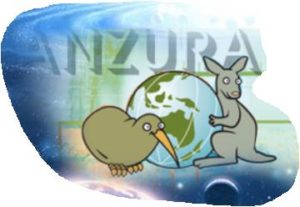
The Australia and New Zealand Urantia Association (ANZURA) is made up of individuals who desire to assist in fostering the study of The Urantia Book and the dissemination of its teachings throughout Australia and New Zealand. It seeks to do this by providing interactive learning environments in which students may deepen and broaden their knowledge of the book and enjoy the interaction and exchange of ideas with fellow students.
It is our intention not to encumber our work for the spreading of The Urantia Book and its teachings with church, temple, or other spiritual institutions. Our members have come to recognise the significance of the book and the integrated beauty of its supernal teachings which encourage us to develop our own philosophy through study, experience, decisions, and actions. Nevertheless, we hold the view, and recognise that collectively there are many valuable projects and programs we can undertake together to achieve our goals.
Some of ANZURA’s functions are to:
- Encourage a deep understanding of the teachings of The Urantia Book
- Facilitate the formation of Urantia Book study groups
- Organise an annual study conference of readers of The Urantia Book
- Enable readers to make contact with other readers
- Publish the Arena newsletter
- Ensure that The Urantia Book is readily available
- Undertake library placement and other gift book programs
- Provide study aids and derivative works of the Urantia teachings
- Undertake any other activities that assist the spread of the teachings of The Urantia Book
ANZURA functions under a constitution providing for democratic procedures and participation of members. It is affiliated (as a National Association) with Urantia Association International which consists of readers from many nations and cultures who want to assist the dissemination of The Urantia Book and its teachings throughout the world.
Members of ANZURA tend to concentrate on the steady person-to-person approach to dissemination, rather than dramatic publicity. It is recognised that social improvement depends on the prior improvement of those who comprise society, and that while such improvement will be slow, it will rest on a strong foundation.
ANZURA welcomes readers of The Urantia Book who are interested in joining us in our attempts to uplift our world by applying, to our own lives, the supernal teachings of this fifth epochal revelation.
More Information
For detailed information on ANZURA’s Services and Programs click here
For information about Membership in ANZURA click here
ANZURA Contact details:
PO Box 1581
Warriewood NSW 2102
Australia
Phone: 0431-285-943,
Email: anzura.urantia@gmail.com
Website: https://anzura.urantia-association.org
|
|
ANZURA Admin 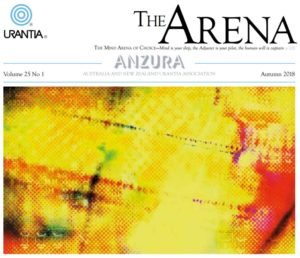 The Arena newsletter keeps students of The Urantia Book throughout Australia, New Zealand and the South Pacific in touch with Urantia related news, activities and events from our local region as well as from the global Urantia Book reader community. It also provides interesting articles written by readers on a wide range of subjects from the book which we hope may be helpful in assisting with your studies. The Arena newsletter keeps students of The Urantia Book throughout Australia, New Zealand and the South Pacific in touch with Urantia related news, activities and events from our local region as well as from the global Urantia Book reader community. It also provides interesting articles written by readers on a wide range of subjects from the book which we hope may be helpful in assisting with your studies.
The Arena is published by ANZURA two to three times a year and is dedicated to the promotion of goodwill and understanding among readers of The Urantia Book. Articles and editorial contributions that relate to The Urantia Book and its teachings are welcome from readers all over the world.
If you would like to receive the Arena or submit an article, please send us an email at anzura.urantia @ gmail.com
To view current and past issues of the Arena click here.
ANZURA’s Contact Details
ANZURA
P.O. Box 1581
Warriewood, NSW 2102
Australia
Phone: 0431 285 943 (from Australia) or +61 431 285 943 (international)
Email: anzura.urantia@gmail.com
Website: https://anzura.urantia-association.org
Please note: Any interpretations, opinions, conclusions, or artistic representations, whether stated or implied, are those of the authors and do not necessarily represent the views and opinions of ANZURA or the editorial team of the Arena.
|
|
Anzura Admin 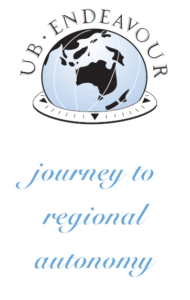 ANZURA’s mission is to foster the in-depth study of The Urantia Book and to disseminate its teachings. ANZURA’s mission is to foster the in-depth study of The Urantia Book and to disseminate its teachings.
The UB Endeavour is a fundraising initiative to raise funds for ANZURA to help us spread The Urantia Book and its teachings throughout the Australia, New Zealand and South Pacific region.
Here are some of our programs designed to achieve these objectives:
Book Distribution – Sowing Seeds
We hold a small inventory of Urantia Books and other associated material such as study aids and secondary works that are available to readers for dissemination projects. We sponsor a gift-book program where books are donated to libraries and relevant learning centres as well as study groups and individuals who wish to assist in the book-seeding program.
Bringing People Together
We provide a reader referral service that helps connect readers with others and to let them know of any study groups or reader activities in their towns or regions. Volunteer staff are also available to respond to inquiries about The Urantia Book and associated reader activities.
Educational Events
Each year ANZURA organises two major study events: The National Study Day and an annual Urantia Book Readers’ Conference. (See Events Calendar on our website at: https://anzura.urantia-association.org/events. We also foster the development of study groups both face-to-face and virtual. (See our Study Group Guide at: https://anzura.urantia-association.org/find-study-groups.)
Website
We maintain a website at https://anzura.urantia-association.org that services readers and curious truth-seekers alike with information, study aids, secondary works, and easy links to the entire text of The Urantia Book online with an efficient search engine.
Study Aids
We maintain a resource library containing a collection of study aids and resources. See our Products list at https://anzura.urantia-association.org/2019/05/05/study-aid-products-order-form
A four-part introductory DVD has been developed as a study aid which can be a useful tool to introduce people to The Urantia Book. (See https://anzura.urantia-association.org/2017/10/20/video-introduction-to-urantia-book
Admin
Naturally none of this work can be done without an administration centre that requires basic office equipment such as computers, printers, internet access, telephones, postage and stationary.
Please Help
There is continually much work to be done and all of this requires funds. Would you please consider making a contribution? For the average income-earner we recommend regular small donations such as a dollar-a-day (or $30 per month) automatically debited from bank accounts on a perpetual basis.
Ways to Donate
If you decide to assist us with the promotion and dissemination of The Urantia Book by contributing to the UB Endeavour fund, you may do so by any of the following methods:
- Call us on 0431 285 943 with credit card details that we can take over the phone.
- Direct debit into ANZURA’s bank account:
Account Name: ANZURA
BSB: 082-146
Account Number: 67 899 2437
- Fill out the Donation Form below and return it with your contribution to:
ANZURA
PO Box 1581
Warriewood, NSW 2102
Australia
For further inquiries phone 0431 285 943 or email: anzura.urantia@gmail.com
Donation Form

|
|
Anzura Admin 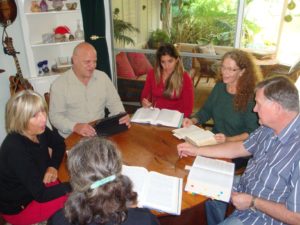 ANZURA maintains a contact list for study group hosts. ANZURA maintains a contact list for study group hosts.
Not all of these hosts actually run a regular study group but all of them are willing to host one for anyone who would like to meet.
Some study groups include virtual participation via Zoom if you cannot meet face-to-face.
Click here to view the list of contacts on the website.
|
|